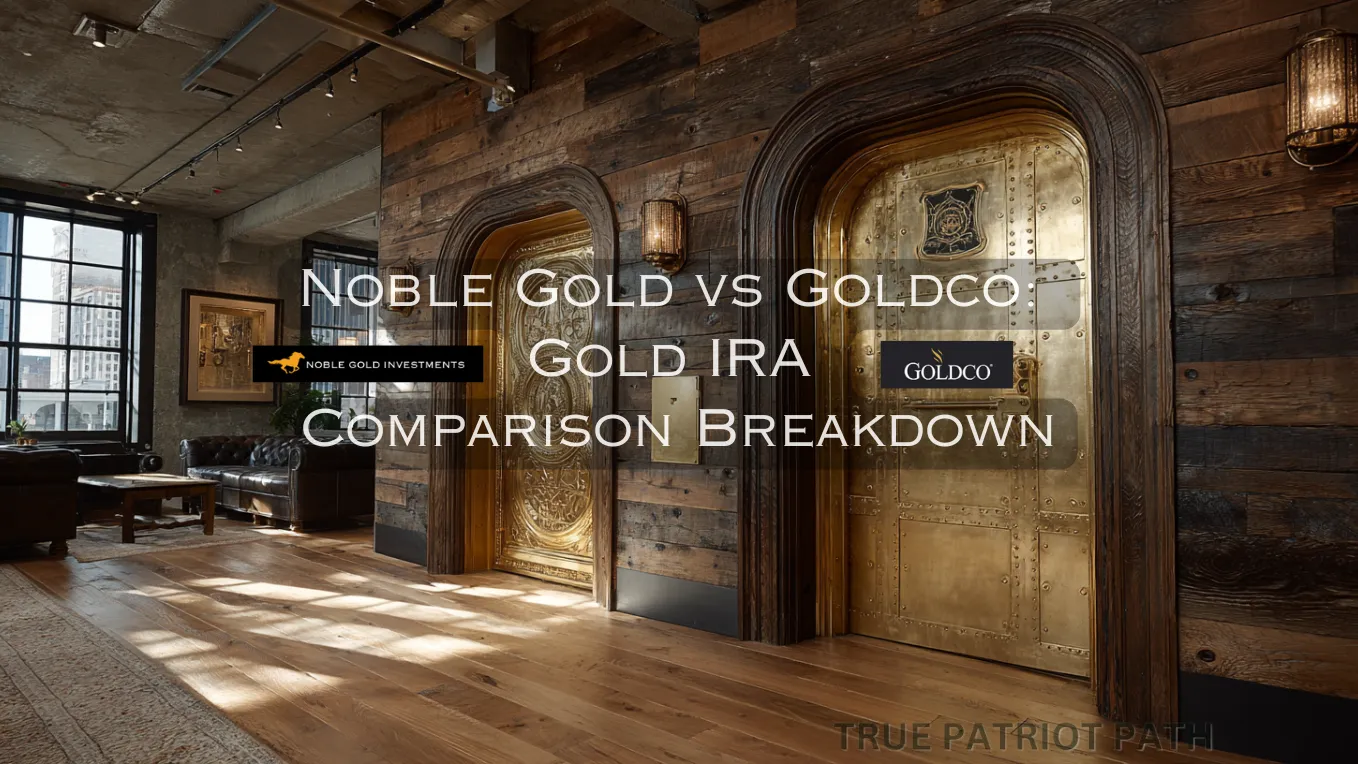In a world of technological innovation and economic uncertainty, investors face a crucial choice. Will they choose the traditional safe haven of gold or the potential rewards of Bitcoin? If you're considering these investments, get ready! Our comprehensive analysis—Gold vs Bitcoin: Which Is More Valuable—will equip you with insights to make smart decisions in 2023. Embark on a journey through reliability and opportunity.
Looking to hedge against market downturns? Consider gold and Bitcoin. While gold boasts a rich history of exchange and wealth preservation, Bitcoin is the new kid on the block in digital currency. Gold remains steadfast during market corrections, while Bitcoin dances with volatility. Moreover, gold shines bright with its industrial applications, whereas Bitcoin primarily serves as a digital currency and speculative investment. The choice between these two lies in your risk tolerance, investing goals, strategy, and available capital.
Understanding the Differences Between Bitcoin and Gold
When deciding between Bitcoin and gold, you need to understand their fundamental differences. While both are store-of-value investments, they appeal to different types of investors.
Gold has been a valuable commodity for centuries, used as currency and protection against uncertainty. Bitcoin, on the other hand, is a new digital currency that emerged in 2009. The value of gold lies in its physical properties and widespread use in industries like jewelry and electronics. It's sought after for practical purposes and as a symbol of wealth. Bitcoin derives its value from being an alternative currency and hedge against traditional financial systems.
One key difference is volatility. Gold tends to hold its value during market downturns, while Bitcoin has shown highly volatile price movements due to speculation, sentiment shifts, regulations, and technology changes.
Regulations also differ significantly. Gold trading is heavily regulated with established mechanisms for transparency. In contrast, Bitcoin's regulatory landscape is still evolving globally which introduces uncertainty for potential investors. Now let's explore the nature of store-of-value investments further.
The Nature of Store-of-Value Investments
Store-of-value investments refer to assets that are expected to retain or increase in value over time, providing a hedge against inflation and economic uncertainty. Both gold and Bitcoin serve this purpose for different reasons.
Gold has been trusted as a store of value for centuries due to its physical properties, scarcity, and long-standing recognition as a medium of exchange. Its limited supply and widespread acceptance give it intrinsic value. Investors view gold as a reliable asset that can preserve their wealth during market downturns or geopolitical turmoil. It is often seen as a safe haven investment, offering stability and security.
Bitcoin, on the other hand, offers unique characteristics that make it appealing as a store of value option. Its decentralized nature means it operates independently of traditional banking systems and government control. This feature appeals to those who are skeptical of centralized financial institutions or want an alternative investment outside the influence of traditional monetary policies. Additionally, the limited supply of Bitcoin, with only 21 million coins ever to be mined, contributes to its potential value appreciation over time.
However, it's important to note that Bitcoin's volatility introduces higher risk compared to gold when considering it as a store-of-value investment. The price swings in Bitcoin can be substantial within short periods, leading to potential gains but also significant losses. This aspect makes Bitcoin more suitable for investors who can tolerate higher levels of risk and volatility in pursuit of potentially greater returns.
Ultimately, the choice between gold and Bitcoin as store-of-value investments depends on individual preferences, risk tolerance, and investment goals. Some may prefer the historical stability and tangible nature of gold, while others may be drawn to the technological innovation and potential future utility of Bitcoin.
- According to a study by Pantera Capital, from 2010 to 2022 Bitcoin has provided an average annual return of 1,576% and a total return of 18,912%, vastly outperforming gold.
- A report from JP Morgan in 2020 highlighted that gold's volatility, as per historical data, is significantly lower than Bitcoin's, emphasizing its relative stability.
- Research from Cambridge University indicates that although gold has a far longer trading history, spanning over 5000 years compared to Bitcoin's mere 14-year history, more people are showing interest in digital currency investments like Bitcoin since the pandemic hit in early 2020.
Evaluating Market Worth: Gold vs Bitcoin
When it comes to evaluating the market worth of gold and Bitcoin, there are several factors to consider. Both assets have their unique characteristics that contribute to their value in the market.
Gold, a precious metal with a long history of being used as currency and a store of value, has established itself as a safe haven investment. It is often seen as a hedge against inflation and economic uncertainties. The demand for gold is influenced by various factors, including global economic conditions, geopolitical tensions, and investor sentiment.
On the other hand, Bitcoin is a decentralized digital currency that emerged in 2009. It operates on blockchain technology and offers decentralization, security, and immutability. The value of Bitcoin is driven by factors such as supply and demand dynamics, adoption rates, regulatory developments, technological advancements, and market speculation.
Now that we have discussed the evaluation of market worth for gold and Bitcoin let's delve into the key factors that impact their respective prices.
Key Factors Impacting Price
As an investor or someone interested in these assets, you might wonder what factors play a significant role in determining the price of gold and Bitcoin. Let's explore some of these key factors:
For Gold:
- Geopolitical Events: Political instability, conflicts, economic sanctions, or major policy changes can influence the price of gold.
- Inflation: When inflation rises, investors often turn to gold as a hedge against the declining value of fiat currency.
- Central Bank Policies: Actions taken by central banks regarding interest rates or monetary stimulus measures can impact gold prices.
- Jewelry Demand: Gold has significant demand for jewelry production worldwide. Trends in jewelry consumption can affect its price.
- Mining Supply: Changes in mining output or disruptions in supply chains can influence the availability and price of gold.
For Bitcoin:
- Market Adoption: The rate at which Bitcoin is adopted by individuals, businesses, and institutions can impact its demand and price.
- Regulatory Environment: Government regulations and policies regarding cryptocurrencies can influence the perception and adoption of Bitcoin.
- Technological Developments: Advancements in blockchain technology or improvements to the Bitcoin network can affect its price.
- Market Sentiment: Media coverage, investor sentiment, and market speculation can have a significant influence on the volatility of Bitcoin's price.
The interaction of these factors can create complex price trends, making analysis intriguing and challenging. Stay informed and watch the market dynamics to make smart investment decisions. For example, global unrest may increase demand for gold as investors seek a safe haven in uncertain times.
On the other hand, positive news about mainstream adoption or regulatory clarity can generate interest in Bitcoin and potentially drive up its price.
Why Bitcoin May Be More Valuable Than Gold
Bitcoin has a clear advantage over gold when it comes to investment value. Its potential for exponential growth sets it apart. Unlike gold, which has remained stable for centuries, Bitcoin is a new asset that has consistently appreciated in price.
For example, in 2010, Bitcoin was worth less than a dollar per coin. Fast forward to 2021, and it reached an all-time high of nearly $70,000 per coin. This tremendous growth potential makes Bitcoin an attractive investment option for those seeking substantial returns on their investments.
Another advantage that sets Bitcoin apart from gold is its divisibility and transportability. While gold is traditionally traded in physical form, which can be cumbersome and subject to additional costs like storage and insurance, Bitcoin exists entirely in digital form. It can be easily divided into smaller units called satoshis and transferred across borders with relative ease and speed.
In addition, Bitcoin operates on a decentralized network known as the blockchain, which ensures transparency and immutability of transactions. This decentralized nature eliminates the need for intermediaries like banks or governments to authorize or validate transactions. This not only reduces transaction costs but also offers increased security and privacy for users.
Now that we've explored why Bitcoin may be more valuable than gold, let's delve deeper into the advantages offered by its security and decentralization features.
Security and Decentralization Advantages
One of the key advantages of Bitcoin lies in its security features provided by the blockchain technology it runs on. The blockchain serves as a digital ledger that records every transaction made with Bitcoin. Due to its decentralized nature, the blockchain network prevents any single entity from having complete control over the data recorded on it.
Imagine a scenario where a hacker attempts to alter a transaction record on the Bitcoin blockchain. The decentralized network, with its distributed consensus mechanism, makes it extremely difficult for any one person or entity to modify the ledger's records without majority consensus from the network participants. This high level of security greatly reduces the risk of fraudulent activities or unauthorized tampering of transaction data.
Moreover, the decentralized nature of Bitcoin also provides a level playing field for all participants. Unlike traditional financial systems where certain institutions or individuals may have more influence or power, Bitcoin operates based on a consensus algorithm that ensures equal participation and decision-making power for all network participants.
By embracing decentralization, Bitcoin offers individuals autonomy over their finances and avoids the vulnerabilities associated with centralized control. This aspect has been particularly appealing to those seeking alternatives to traditional financial systems and governments' monetary policies.
Risks and Challenges of Investing in Bitcoin and Gold
When it comes to investing in Bitcoin and gold, you need to know the risks. Both offer high potential returns but also come with uncertainties.
Bitcoin has its own set of risks. The cryptocurrency market is volatile, with prices changing rapidly. This can lead to big gains or big losses. There's also uncertainty around regulations and the risk of cyberattacks on exchanges.
Take James as an example. He invested a lot in Bitcoin when prices were high, hoping for a quick profit. But he didn't expect the crash that followed and lost a significant amount because he sold. He could have used dollar-cost-averaging (DCA) during Crypto Winter to come out ahead into the next Bitcoin Halving period, which is bullish.
Gold also has challenges. While seen as safe historically, its value can still fluctuate based on market conditions and investor sentiment. Economic factors like inflation rates and interest rates impact gold too. Plus, storing and securing physical gold can be difficult.
Look at Mary's situation. She bought physical gold coins to protect her wealth during uncertain times but found storage more challenging than expected.
Remember that both Bitcoin and gold have risks, so research is required before making investment decisions. Diversifying your portfolio helps reduce potential losses. Some argue that Bitcoin's decentralized nature makes it worth the risk while others believe in gold's long history and tangible value.
Think about your financial goals, risk tolerance, and time horizon before choosing which investment suits you best.
In conclusion, investing in Bitcoin or gold offers unique opportunities but also challenges. Evaluate each asset carefully considering diversification, research, and understanding your financial goals. This will help navigate uncertainties for informed decisions










